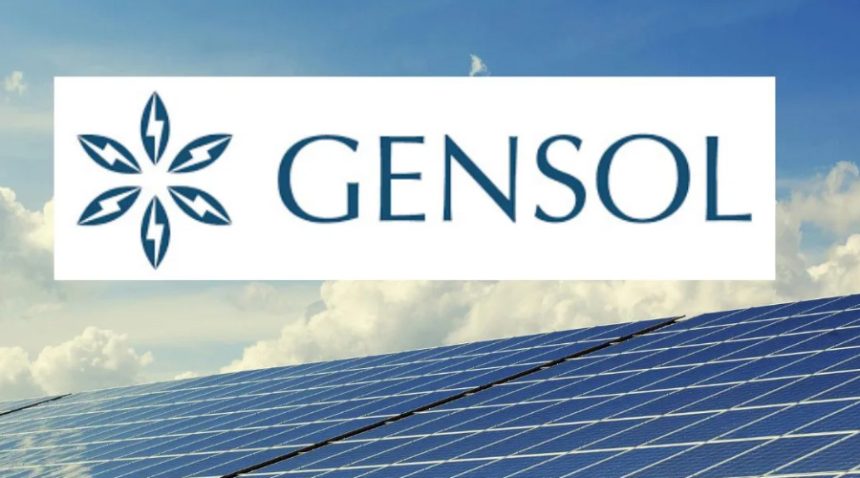The company’s stock value collapsed by 92%, falling from a high of ₹1,125 in 2024 to around ₹60 by May 2025
Gensol Engineering Ltd., a well-known Indian company in the renewable energy and electric vehicle (EV) space, faced a massive crisis in 2025. The company’s stock value collapsed by 92%, falling from a high of ₹1,125 in 2024 to around ₹60 by May 2025. This sharp fall has shocked investors and raised serious questions about corporate governance, financial misuse, and regulatory oversight.
Here’s a detailed look at what led to this sudden downfall.
Misuse of Borrowed Money
One of the biggest reasons behind the crash is the suspected misuse of borrowed funds. Gensol Engineering had taken loans worth nearly ₹975 crore from government-backed institutions like the Indian Renewable Energy Development Agency (IREDA) and Power Finance Corporation (PFC). These loans were supposed to be used to buy electric vehicles and expand their business.
However, investigations found that the money was not used for EV procurement. Instead, large sums were allegedly spent on unrelated things like luxury cars, foreign travel, and transferring money to personal accounts and companies owned by the promoters themselves. This raised major red flags.
SEBI’s Action Against Promoters
The Securities and Exchange Board of India (SEBI), which regulates the stock market, took quick action. The two main promoters of Gensol, Anmol Singh Jaggi and Puneet Singh Jaggi, were barred from holding any top positions in the company. SEBI also banned them from trading in the stock market.
Additionally, a stock split planned by the company was stopped. This move was intended to prevent further losses to small retail investors.
Frozen Bank Accounts and Asset Seizures
The National Company Law Tribunal (NCLT), which handles corporate legal matters, froze all bank accounts, lockers, and stock holdings (demat accounts) linked to Gensol and its promoters. This action also included 34 other companies and individuals connected to them.
All of Gensol’s shares were suspended from trading on the National Stock Exchange (NSE) and the Bombay Stock Exchange (BSE). Meanwhile, the Debt Recovery Tribunal in Delhi ordered that the company’s assets, especially the electric vehicles that were bought using the loan, must not be sold or moved without approval.
Enforcement Directorate (ED) Raids
India’s financial crime agency, the Enforcement Directorate (ED), got involved and carried out searches at Gensol’s offices in Gurgaon and Ahmedabad. They seized important documents, laptops, and mobile phones. This investigation is part of a larger probe into whether the funds were illegally used and if there were any violations of money laundering laws.
Lack of Corporate Discipline
SEBI’s reports painted a worrying picture. According to findings, Gensol was being run like a personal business by the promoters. Money was being funneled into related party transactions, which means the company was doing business with other firms owned by the same people – a practice that often leads to conflicts of interest.
The promoters were reportedly making financial decisions that favored themselves and not the company or its shareholders.
Operations Were Not As Claimed
When officials from the National Stock Exchange visited Gensol’s EV factory in Pune, they found barely any operations going on. The company had claimed that the unit was active and in full production. But during the visit, only two or three workers were present, and electricity usage was minimal, proving that the plant was mostly inactive.
This suggested that the company may have misled investors about its operations and production capabilities.
Resignation of Key Executive
Amid all this chaos, the company’s Chief Financial Officer (CFO), Jabirmahendi Mohammedraza Aga, resigned from his position. His resignation letter mentioned the ongoing investigations and the internal troubles of the company. This move added to the uncertainty and made investors even more nervous.
Heavy Losses for Investors
Gensol’s fall hit investors hard. The number of small retail investors – everyday people buying shares – had increased significantly just before the crash. Their shareholding went from 23% in December 2024 to over 30% in March 2025.
Interestingly, foreign investors had also raised their holdings, but as the truth about the company’s finances came out, many exited quickly, leading to a freefall in the stock price. A large number of retail investors got trapped at higher prices and suffered major losses.
Influence of Online Financial Influencers
Gensol’s earlier success was widely promoted by financial influencers on platforms like YouTube and Twitter. Some well-known influencers praised the company and encouraged followers to invest. However, they failed to warn investors about the growing financial and governance risks.
Many followers who trusted these recommendations ended up losing money. This has triggered a debate on whether such influencers should be held accountable and if stricter rules are needed to regulate financial advice online.
Ongoing Legal and Regulatory Cases
The situation is far from over. Several legal cases are in progress. The NCLT is scheduled to hear more on June 3, 2025, regarding Gensol’s assets and its future path. SEBI and ED continue to examine the flow of money, and new details may emerge in the coming months.
Until these investigations are complete and the legal issues are resolved, Gensol Engineering’s future remains highly uncertain.
Final Thoughts
Gensol Engineering’s rise and fall serve as a powerful reminder of what can go wrong when companies lack transparency and accountability. From misusing funds to misleading investors and breaking market rules, the company’s management made several damaging decisions.
For investors, this case highlights the importance of looking beyond the hype and carefully examining a company’s financials, operations, and management integrity. Regulatory bodies like SEBI and the Enforcement Directorate have stepped in to control the damage, but for thousands of investors, the losses are already real.
Whether Gensol can recover from this situation depends on upcoming legal decisions, changes in management, and the company’s ability to rebuild trust. For now, it stands as one of the most dramatic crashes in recent market history.





